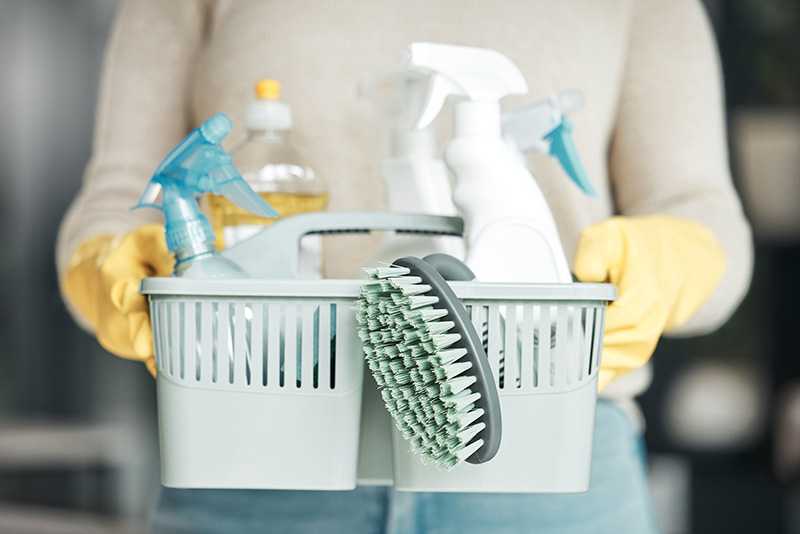Can Cleaning Products Affect My Indoor Air Quality?
September 13th, 2023 by eshoop

Maintaining good indoor air quality is essential for a healthy living environment. Cleaning products keep our homes clean and fresh, but some can cause indoor air pollution. In this article, we explore the impact of cleaning products on indoor air quality. We also provide practical tips to reduce the effects of cleaning products on your home.
The Importance of Good Indoor Air Quality
Indoor air quality refers to the level of pollutants present in the air inside your home. Poor air quality can lead to various health issues. These include respiratory problems, allergies, and asthma. Long-term exposure to indoor air pollution can also lead to more serious conditions. These include cardiovascular disease and even cancer. So, it’s crucial to create a clean and healthy indoor environment.
How Cleaning Products Can Affect Indoor Air Quality
Many cleaning products can release volatile organic compounds (VOCs) into the air. VOCs are gasses emitted from certain solids or liquids. They can have both short-term and long-term health effects when inhaled. Bleach, ammonia, and air fresheners are the main culprits causing indoor air pollution. These VOCs can irritate the respiratory system and trigger allergies. Some may even cause headaches and dizziness.
When using cleaning products in areas with poor ventilation, the VOCs become trapped. This further compromises indoor air quality. The effects of cleaning products on indoor air quality vary depending on a few factors. These include the specific product, frequency of use, and ventilation in your home.
Reducing the Effects of Cleaning Products on Indoor Air Quality
It may seem impossible to cut out the use of cleaning products completely from your home. But, there are steps you can take to reduce their impact on indoor air quality.
- Choose Safer Alternatives. Look for cleaning products labeled as “green” or “good for the environment.” These products tend to have lower levels of VOCs and other harmful chemicals. Natural alternatives can also be effective for many cleaning tasks.
- Read Labels. Before purchasing cleaning products, read the labels. Look for any potential health hazards or warning signs. Avoid products that contain strong fragrances or harsh chemicals. These include chlorine bleach or ammonia.
- When using cleaning products, ensure proper ventilation. Open windows or use exhaust fans. This helps to remove any pollutants from the air and reduce their concentration.
- Use Minimal Amounts. Follow the recommended instructions and use cleaning products as little as possible. Using excessive amounts of cleaning products can release an unhealthy amount of VOCs.
- Store In The Proper Manner. Store cleaning products in a well-ventilated area away from living spaces. This prevents the continuous emission of VOCs into your indoor environment.
- Consider DIY Cleaning Solutions. As mentioned earlier, natural ingredients can be effective alternatives to commercial cleaning products. Consider using vinegar, baking soda, and lemon juice to clean instead. There are many DIY recipes available online that offer safe cleaning solutions.
Contact Us
With these practices, you can reduce the impact of cleaning products on your home. You can create a healthier living space for you and your family. Remember, maintaining good indoor air quality goes beyond cleaning products. You need to dust and vacuum often and control humidity levels. Ensuring proper ventilation is also vital for creating a clean and healthy home. If you need help managing your indoor air quality, contact us. We can help you with all your HVAC needs.

